QuestionHi! I am very concerned about my 5 1/2 month old piggy named Jimmy Dean. We had gotten him neutered about 2 weeks ago. He has been healthy & has had a normal appetite, up until today. Unexpectedly today, we woke to find him covered in bumps resembling hives & he has been lethargic. He did eat once & will drink when he does get up. He's an indoor pet, & his bedding gets washed every week. He goes outside for rooting, playing, relieving himself & playing, What could possibly be wrong with our baby? I can't find anything online describing his symptoms.
AnswerI am not a veterinarian, and can not make a diagnosis over the internet. Are the bumps large or small? All over his body randomly, or in clusters? Soft or possibly filled with liquid? Or rock hard?
Pigs can suffer from allergies, just as humans do. It could be a reaction to mold or a rash-causing plant, like poison ivy or tansy. Skin reactions to these kind of plants often take several days to develop, so the actual exposure might have been as long as 4 days ago.
At almost 6 months old, your piggy still has soft baby skin. Fleas, ticks and other parasites usually can not bite through adult pig skin, but can penetrate baby pig skin. Biting ants, stinging bees, mud wasps, spiders and other insects can leave raised welts on the skin. Some species of fly lay their eggs in mammals, the hatched maggots feed off the blood of the host mammal.
It's extremely unlikely your piggy has one of the several swine diseases that cause skin lesions, welts and bumps.
Any product for human skin can be safely used on piggies. Piggy skin and human skin is so much alike that pig skin grafts are used to treat human burns. Piggies do not lick themselves as dogs and cats will do, so there's no danger of piggy accidentally ingesting a medicated skin cream applied to their bodies.
Check piggy's outdoor area for possible problems, like anthills, mud wasp holes, poison ivy, oak or sumac, tansy or any other potentially irritating plant or insect.
If piggys condition does not improve in a couple of days, piggy will need to see a vet to determine the cause and treatment.

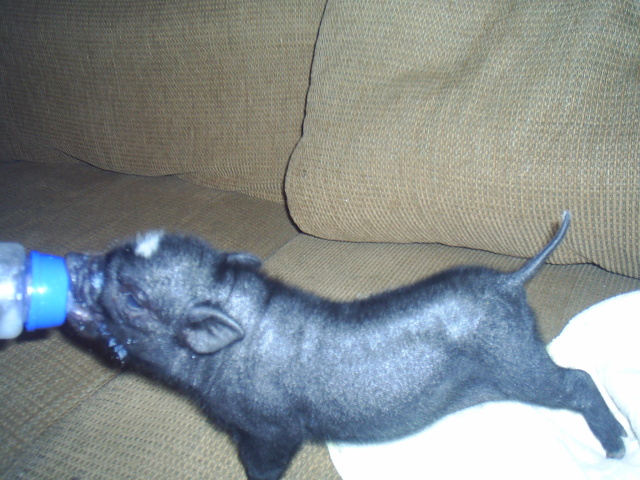 10 days old...Am I doing it right?
QuestionQUESTION: we recently got a 10 day old pot bell
10 days old...Am I doing it right?
QuestionQUESTION: we recently got a 10 day old pot bell
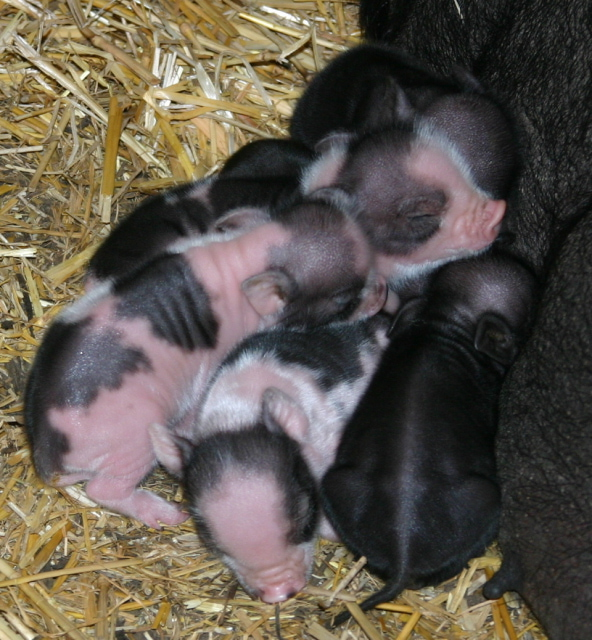 sucking noise?
QuestionMy pot belly pig is making a smacking, sucking
sucking noise?
QuestionMy pot belly pig is making a smacking, sucking
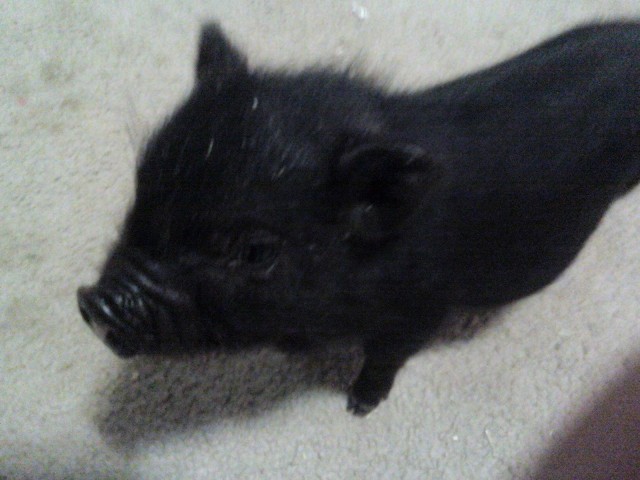 3 1/2 wk pbp
QuestionQUESTION: I am the proud owner of a healthy (sa
3 1/2 wk pbp
QuestionQUESTION: I am the proud owner of a healthy (sa
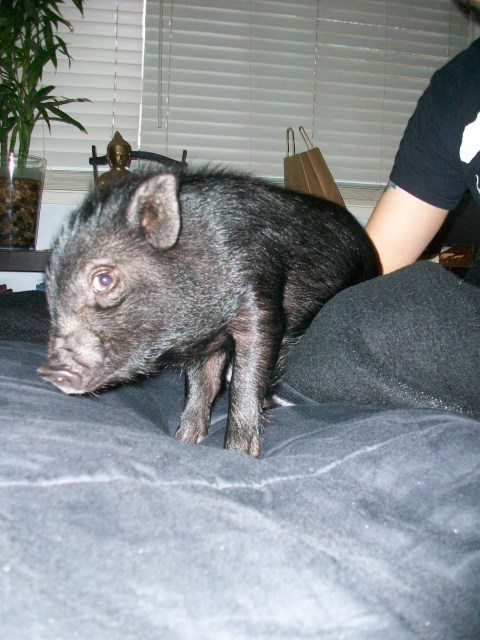 9 week old pig
Question
QUESTION: Hello,
We purchased a pot be
9 week old pig
Question
QUESTION: Hello,
We purchased a pot be
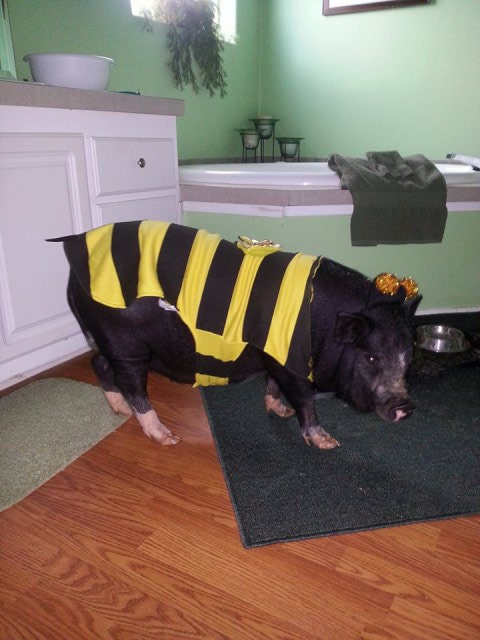 Possible injury
Question
Ellie Mae
I have a 5 month old, female
Possible injury
Question
Ellie Mae
I have a 5 month old, female